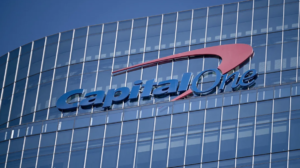Most stocks on Wall Street fell Thursday after a report revealed U.S. wholesale inflation rose more than expected last month, shaking investor confidence. Despite the widespread decline, the S&P 500 dipped only 0.1%, thanks to gains in heavyweight tech companies like Amazon. The index had just reached a record high the previous day.
As of early afternoon trading, the Dow Jones Industrial Average had dropped 144 points, or 0.3%, while the Nasdaq composite was nearly flat after also hitting a record high the day before. Notably, around 80% of stocks in the S&P 500 were down.
The latest data showed producer prices surged 3.3% in July compared to a year earlier—well above economists’ expectations of 2.5%. That raised concerns about inflationary pressures potentially flowing down to consumers in the coming months.
This unexpected jump in inflation caused investors to question the near-universal belief that the Federal Reserve would cut interest rates in September. While lower rates typically boost the economy and markets by making borrowing cheaper, they can also risk fueling further inflation.
“This doesn’t slam the door on a September rate cut,” said Chris Larkin of E-Trade from Morgan Stanley, “but it may raise some doubt.”
Market expectations shifted significantly after the inflation report. Just a day earlier, traders were fully pricing in a September rate cut. Now, they see a 7.2% chance the Fed might hold rates steady, according to CME Group data.
Higher interest rates tend to hurt companies broadly, but smaller businesses are often hit hardest due to their greater reliance on borrowing. Reflecting this, the Russell 2000 index of small-cap stocks dropped 1.7%—the biggest decline among major indexes.
The inflation shock followed a more optimistic consumer price report earlier in the week. Separately on Thursday, a report showed fewer Americans filed for unemployment benefits last week, signaling ongoing strength in the job market despite fewer open positions. While that’s good news for workers, it also reduces pressure on the Fed to cut rates quickly.
In the bond market, the inflation data pushed Treasury yields higher. The 10-year yield jumped to 4.29%, up from 4.24% late Wednesday and 4.20% just before the reports were released.
Among individual stocks, Tapestry—parent company of Coach and Kate Spade—fell 14.4% after warning about the negative impact of tariffs on future profits. Despite beating profit expectations for the most recent quarter and reporting stronger-than-expected revenue forecasts, its earnings outlook disappointed analysts.
Deere also declined, falling 7.1%, after it lowered the high end of its full-year profit forecast. Even though the machinery maker beat expectations for the quarter, it cited ongoing uncertainty and customer caution going forward.
On the brighter side, Fossil Group surged 22.1% after reporting a better-than-expected profit and unveiling a new financial strategy. The company did lower its forecast for full-year sales, but investors seemed more focused on its cost-cutting efforts.
Amazon stood out among Big Tech winners, climbing 3.1% as it continued gaining momentum from a previous announcement that it will offer same-day grocery delivery in over 1,000 cities and towns. With a massive market value of $2.45 trillion, Amazon’s gains helped buoy the S&P 500 despite broader declines.
Global markets were mixed, with Asian and European indexes showing little clear direction ahead of a key meeting on Friday between U.S. President Donald Trump and Russian President Vladimir Putin.
Also Read:
Wall Street Hovers Near Record Highs After Global Market Rally
China Evergrande Set for Removal from Hong Kong Stock Market Amid Debt Crisis














